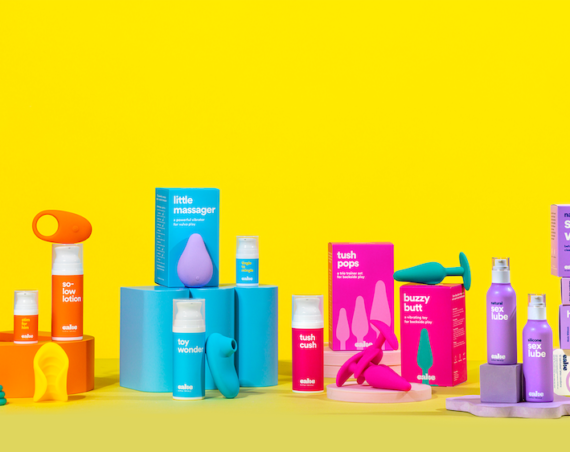
The U.S. Department of Health and Human Services (HHS) Office on Women’s Health has revealed the final phase winners of the HHS Hypertension Innovator Award Competition. This national competition aims to identify and reward innovative programs that ensure women with hypertension during pregnancy and/or postpartum receive appropriate monitoring and follow-up. The competition aligns with the Biden-Harris Administration’s White House Blueprint for Addressing the Maternal Health Crisis, which seeks to combat maternal mortality and improve maternal and infant health, with a particular focus on underserved communities.
“By recognizing innovative programs addressing hypertension during pregnancy and maternal health disparities across the nation, we reaffirm our commitment to ensuring nationwide maternal health excellence and equity,” said Assistant Secretary for Health Admiral Rachel Levine. “Community-tailored solutions increasing access to and coverage of comprehensive maternal health care are critical in achieving health equity.”
Hypertension affects one in every twelve to seventeen pregnancies in the United States and contributes significantly to maternal health disparities. Racial and ethnic disparities in hypertensive disorders during pregnancy disproportionately affect Black women and American Indian and Alaska Native women. Factors contributing to these disparities include lack of access to quality health care, racial bias in the health care system, and psychosocial stress from experiencing racism. Additionally, women from all backgrounds face barriers to managing blood pressure, including cost, transportation, schedules, and lack of education about blood pressure control.
“Managing hypertension before, during, and after pregnancy is paramount for the well-being of both mother and baby,” said Dorothy Fink, M.D., Deputy Assistant Secretary for Women’s Health and Director of the Office on Women’s Health. “By empowering health care providers and mothers, we contribute to healthier pregnancies and improved maternal and infant outcomes.”
The competition’s third and final phase recognized programs that successfully replicated or expanded their models. Each of the following phase 3 winners received a prize of up to $100,000:
- Boston Medical Center: The Remote Cloud Connected Postpartum Blood Pressure Monitoring Program utilizes a cloud-based platform and cell-enabled blood pressure cuffs to monitor high-risk women post-delivery. The program significantly reduced readmission risks and expanded to include high-risk pregnant patients, enrolling 193 women, 81% of whom were non-Hispanic Black or Hispanic.
- Brigham and Women’s Hospital: Improving Outcomes by Empowering Women After Hypertensive Pregnancy transitions care from obstetrics to primary care with a virtual format, enhancing blood pressure monitoring and control among postpartum patients. The program has supported replication across 14 other health systems nationwide.
- CommonSpirit Health: The Maternal Hypertension Initiative (MHI) addresses hypertensive disorders of pregnancy through three evidence-based interventions, reducing rates of eclampsia and severe maternal morbidity. The program has expanded to over 75 emergency departments across 18 states.
- Emagine Solutions Technology: The Journey Pregnancy suite, including The Journey Pregnancy app, The Journey Clinic software, and VistaScan ultrasound, enhances maternal health outcomes with data-driven solutions. The program’s integration with electronic health records and wearable devices has resulted in an 860% increase in the user base.
- Lehigh Valley Health Network: Continuous Ambulatory Remote Engagement Services (CARES) expanded its remote monitoring program for postpartum preeclampsia to three additional rural hospitals, significantly increasing blood pressure monitoring among postpartum patients.
- New York City Health + Hospitals: The Hypertension Treat to Target Program (T2T) links women with hypertensive disorders of pregnancy to primary care, increasing engagement and blood pressure control. The program plans to expand to all hospitals within the health system.
- Ochsner Health: Connected Maternity Online Monitoring (MOM) has increased blood pressure monitoring among Black and rural patients during pregnancy and postpartum, with the platform being adopted by over 100 providers in Louisiana, reaching over 2,000 patients last year.
- Preeclampsia Foundation: The Cuff Kit program provides self-monitoring blood pressure kits to women at high risk for hypertensive disorders, facilitating daily readings and rapid provider response. The program has distributed over 26,877 kits across 27 states.
- University of Chicago: The Systematic Treatment and Management of Postpartum Hypertension (STAMPP-HTN) uses home blood pressure monitoring and telehealth to improve postpartum care, eliminating racial disparities. The program has been replicated in seven institutions across multiple states.
- University of Pennsylvania: Heart Safe Motherhood uses text messaging for postpartum hypertension monitoring, significantly increasing blood pressure control and reducing related admissions. The program is expanding to additional hospitals and assisting other locations nationwide.
- University of Wisconsin: Staying Healthy After Childbirth provides Bluetooth-enabled blood pressure devices for postpartum monitoring. The program is conducting a randomized control trial to improve blood pressure control and lifestyle behaviors through 12 months postpartum.
These programs are making substantial strides in addressing maternal hypertension, ensuring that women receive the care they need during and after pregnancy.



